Inge Otto says it was mother’s intuition that first led her to believe that her son Jacob may be autistic. “My oldest son Reuben hit his milestones at a very early age and although I know you shouldn’t compare children, I was concerned about Jacob’s development before he even turned one.”
When Jacob wasn’t making the baby sounds that he should, Inge asked her public health nurse for a hearing test but the public waiting list was 13 months long.
“I wasn’t prepared to wait so I got a private appointment almost immediately. There was nothing wrong with his hearing, but the audiologist said he may have some sensory issues. That set us on a path exploring what was going on with Jacob.”
Supports needed
Further investigations showed that Jacob had additional needs but, again, the waiting list to get an official diagnosis was extremely long.
“A friend who works in the industry said to me: ‘Whether Jacob gets a diagnosis or not, the path for you to support and help him is going to be the same. So he needs to be with a speech therapist and an occupational therapist now.’
It would be months, even years to get that diagnosis with the HSE and my husband and I knew the importance of early intervention, so we started paying for those supports privately.
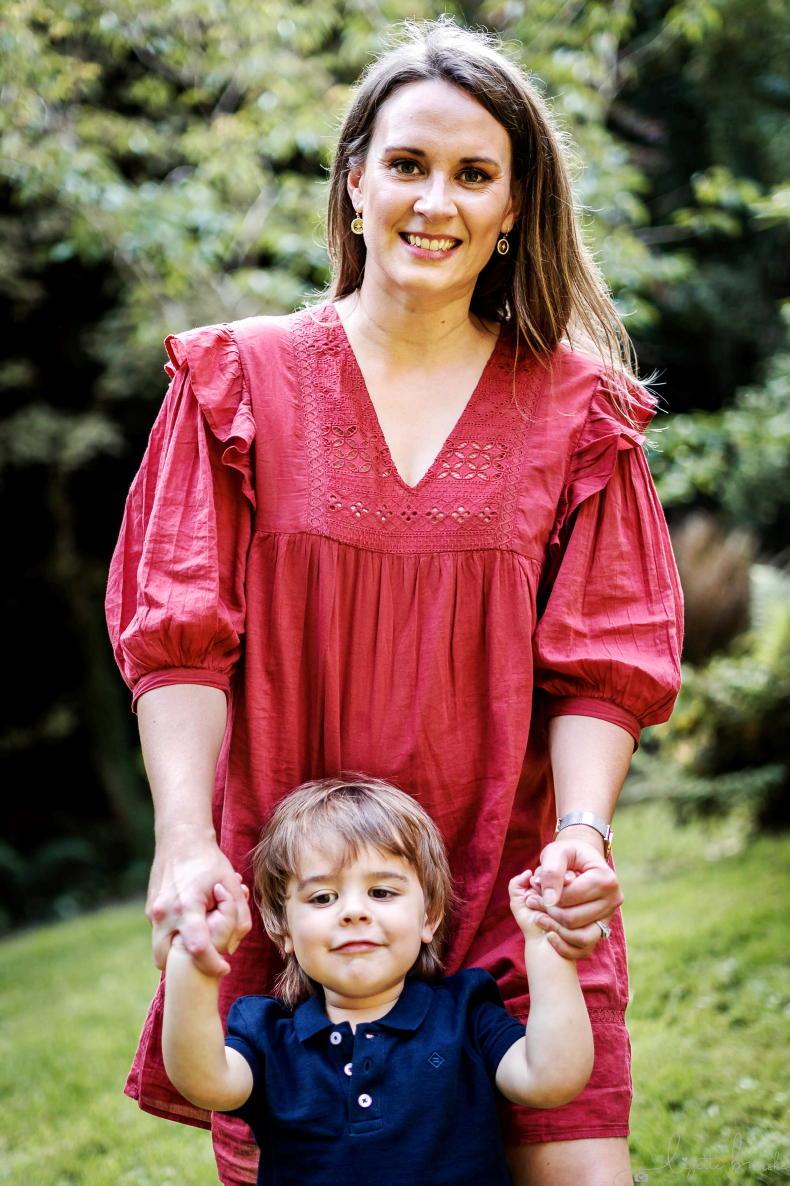
Inge Otto with son Jacob.
“The occupational therapist diagnosed Jacob with a sensory processing disorder and we knew that he would most likely get an autism diagnosis in the future.
Jacob was severely dysregulated, spinning around, screaming, crying, there was lots of horrific things going on for him.
“She wrote a 21-page document of recommendations to put in place for him. We had tutors, we employed therapists, everything he needed to do.
But we needed that HSE diagnosis to get the financial supports and it wasn’t until he was four-years-old that Jacob got that diagnosis.”
Early education
In terms of childcare, Inge says that Jacob was in a local creche. Many children attending creche continue their ECCE (early childhood education programme) in that location, as did Jacob.
That all changed in the space of one day, however. Inge explains: “As part of the assessment process, a psychologist observes the child and they did this in the creche.
But what came back in the report broke my heart. It said Jacob was left standing in the corner of the room staring at the wall for a long time.
It also said he was spinning around the room for 25 minutes on his own and was not encouraged to integrate into the group whatsoever.
There had been some signs leading up to that point, like pictures of nature walks that Jacob wasn’t in. When I questioned the teacher, I was told he didn’t want to go on the walk that day but then all the pieces clicked into place.
“That evening, I went to collect him and I informed the school that Jacob would not be returning to their service. It was the right decision but then I was left in the position of where will he go now?
“I rang my friend in a panic and she told me about the supports that are offered to children with additional needs in Treehouse Montessori in Kilternan in Dublin. I rang Elaine, explained the situation and thankfully, I got a place for him.
The right setting
“The difference it has made to Jacob’s development, of being in a setting where he has the appropriate care, attention and education is indescribable.
For example, out of their own money, they developed a sensory room to help Jacob transition into the school day. Entering the school setting was just too overwhelming for him, so the room is at the side entrance.
Jacob enters that door in the morning and there is calming music playing with lots of sensory equipment such as lights that he can touch that turn different colours. This helps him calm and transition into the school environment.
And if he does deregulate during the day, he can go back into the room. In fact, now it’s used by lots of other children if they become overwhelmed during the day.
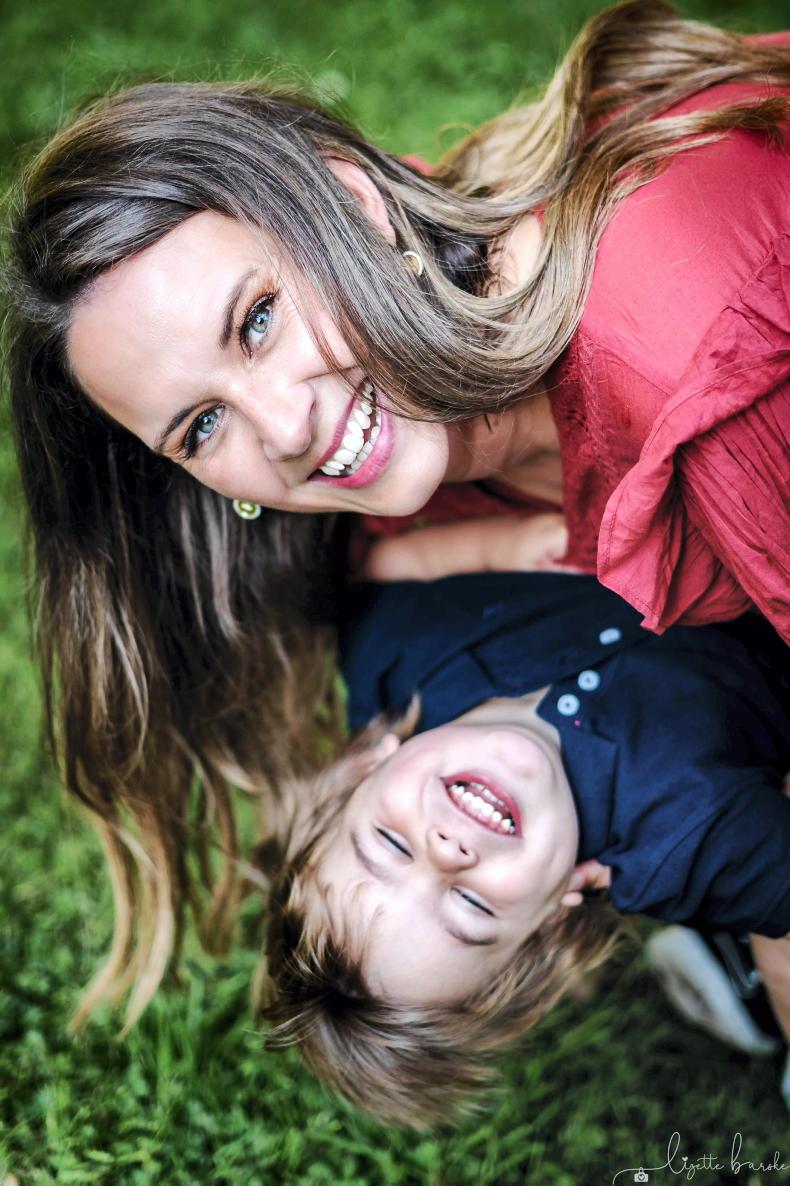
Inge Otto with son Jacob.
“Also, if a child is deemed eligible for an AIM support worker, an extra staff member is employed. However, they don’t have to have specific qualifications.
Jacob’s preschool employed a person with the appropriate qualifications to assist a child with additional needs.
The AIM grant didn’t cover the full wage but they paid extra themselves. This has helped him develop his strengths and he has many.
Jacob has now been diagnosed with Savant syndrome and the best way to describe this is the autistic person you see in the movies, very bright and intelligent.
So he has a photographic memory and he can say the alphabet backwards and name all the planets based on their distance to the sun, anything that has an unchanging pattern. But he finds it hard to form sentences.
“This has all been encouraged in the appropriate preschool model and the difference has been amazing. They have helped him settle into himself and come out of his dream world.
“However, this type of service shouldn’t be few and far between. It should be the level of service that is available to all children with additional needs.
The ‘Mama Bear’ instinct
“I honestly don’t know what we would have done if he didn’t get a space in Treehouse Montessori and I know that there are many parents across the country who are in that position, that don’t have an appropriate ECCE service in their area.
If I couldn’t get a space for Jacob, I would have quit my job and stayed at home with him. And I am sure there are other mothers out there that would do and have done the same.
“On top of that, we have spent so much money over the years to get Jacob the timely support he has needed. And it has put us under a lot of financial pressure.
When it comes to the public system, it has all been a fight, a fight to get a diagnosis, to get the supports he needs.
“But as parents, we fight. Sometimes, I wonder if that is what the Government is relying on. They know what parents are like, they know what mothers are like.
That mama-bear instinct explodes and you take it on yourself, whatever you have to do emotionally, financially. And maybe that’s what they want, they want you to take it on yourself because then they don’t have to.”
See Supports in Sweden
Inge Otto says it was mother’s intuition that first led her to believe that her son Jacob may be autistic. “My oldest son Reuben hit his milestones at a very early age and although I know you shouldn’t compare children, I was concerned about Jacob’s development before he even turned one.”
When Jacob wasn’t making the baby sounds that he should, Inge asked her public health nurse for a hearing test but the public waiting list was 13 months long.
“I wasn’t prepared to wait so I got a private appointment almost immediately. There was nothing wrong with his hearing, but the audiologist said he may have some sensory issues. That set us on a path exploring what was going on with Jacob.”
Supports needed
Further investigations showed that Jacob had additional needs but, again, the waiting list to get an official diagnosis was extremely long.
“A friend who works in the industry said to me: ‘Whether Jacob gets a diagnosis or not, the path for you to support and help him is going to be the same. So he needs to be with a speech therapist and an occupational therapist now.’
It would be months, even years to get that diagnosis with the HSE and my husband and I knew the importance of early intervention, so we started paying for those supports privately.

Inge Otto with son Jacob.
“The occupational therapist diagnosed Jacob with a sensory processing disorder and we knew that he would most likely get an autism diagnosis in the future.
Jacob was severely dysregulated, spinning around, screaming, crying, there was lots of horrific things going on for him.
“She wrote a 21-page document of recommendations to put in place for him. We had tutors, we employed therapists, everything he needed to do.
But we needed that HSE diagnosis to get the financial supports and it wasn’t until he was four-years-old that Jacob got that diagnosis.”
Early education
In terms of childcare, Inge says that Jacob was in a local creche. Many children attending creche continue their ECCE (early childhood education programme) in that location, as did Jacob.
That all changed in the space of one day, however. Inge explains: “As part of the assessment process, a psychologist observes the child and they did this in the creche.
But what came back in the report broke my heart. It said Jacob was left standing in the corner of the room staring at the wall for a long time.
It also said he was spinning around the room for 25 minutes on his own and was not encouraged to integrate into the group whatsoever.
There had been some signs leading up to that point, like pictures of nature walks that Jacob wasn’t in. When I questioned the teacher, I was told he didn’t want to go on the walk that day but then all the pieces clicked into place.
“That evening, I went to collect him and I informed the school that Jacob would not be returning to their service. It was the right decision but then I was left in the position of where will he go now?
“I rang my friend in a panic and she told me about the supports that are offered to children with additional needs in Treehouse Montessori in Kilternan in Dublin. I rang Elaine, explained the situation and thankfully, I got a place for him.
The right setting
“The difference it has made to Jacob’s development, of being in a setting where he has the appropriate care, attention and education is indescribable.
For example, out of their own money, they developed a sensory room to help Jacob transition into the school day. Entering the school setting was just too overwhelming for him, so the room is at the side entrance.
Jacob enters that door in the morning and there is calming music playing with lots of sensory equipment such as lights that he can touch that turn different colours. This helps him calm and transition into the school environment.
And if he does deregulate during the day, he can go back into the room. In fact, now it’s used by lots of other children if they become overwhelmed during the day.

Inge Otto with son Jacob.
“Also, if a child is deemed eligible for an AIM support worker, an extra staff member is employed. However, they don’t have to have specific qualifications.
Jacob’s preschool employed a person with the appropriate qualifications to assist a child with additional needs.
The AIM grant didn’t cover the full wage but they paid extra themselves. This has helped him develop his strengths and he has many.
Jacob has now been diagnosed with Savant syndrome and the best way to describe this is the autistic person you see in the movies, very bright and intelligent.
So he has a photographic memory and he can say the alphabet backwards and name all the planets based on their distance to the sun, anything that has an unchanging pattern. But he finds it hard to form sentences.
“This has all been encouraged in the appropriate preschool model and the difference has been amazing. They have helped him settle into himself and come out of his dream world.
“However, this type of service shouldn’t be few and far between. It should be the level of service that is available to all children with additional needs.
The ‘Mama Bear’ instinct
“I honestly don’t know what we would have done if he didn’t get a space in Treehouse Montessori and I know that there are many parents across the country who are in that position, that don’t have an appropriate ECCE service in their area.
If I couldn’t get a space for Jacob, I would have quit my job and stayed at home with him. And I am sure there are other mothers out there that would do and have done the same.
“On top of that, we have spent so much money over the years to get Jacob the timely support he has needed. And it has put us under a lot of financial pressure.
When it comes to the public system, it has all been a fight, a fight to get a diagnosis, to get the supports he needs.
“But as parents, we fight. Sometimes, I wonder if that is what the Government is relying on. They know what parents are like, they know what mothers are like.
That mama-bear instinct explodes and you take it on yourself, whatever you have to do emotionally, financially. And maybe that’s what they want, they want you to take it on yourself because then they don’t have to.”
See Supports in Sweden





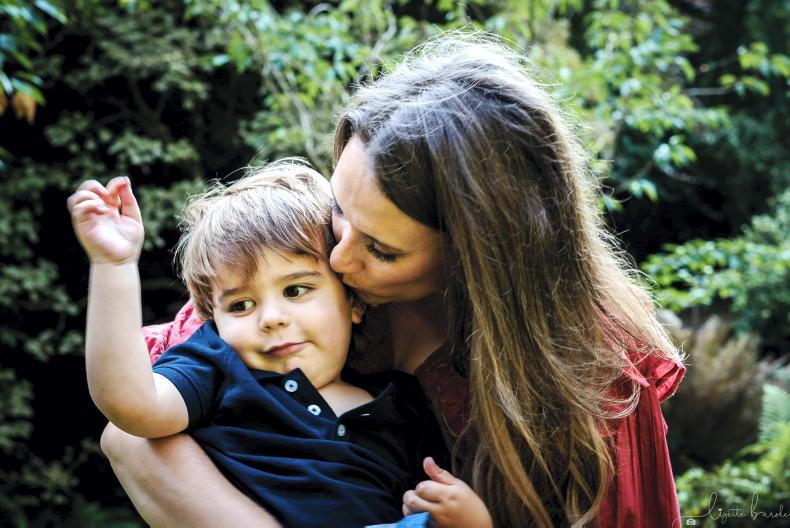


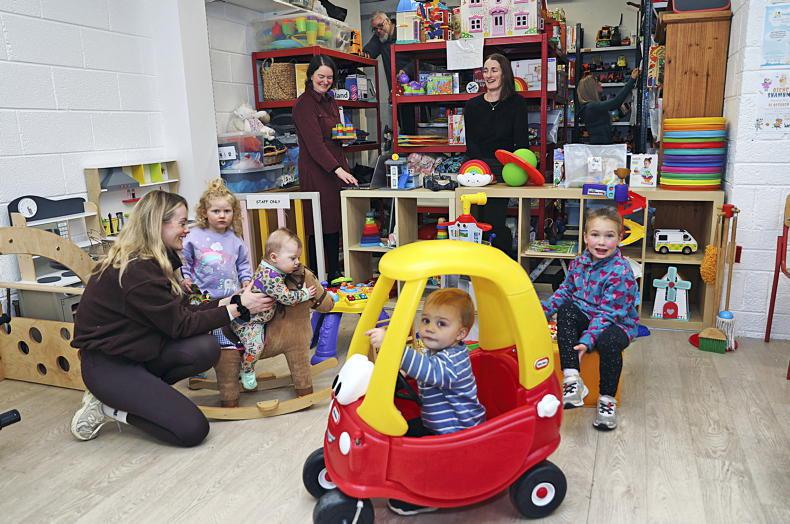
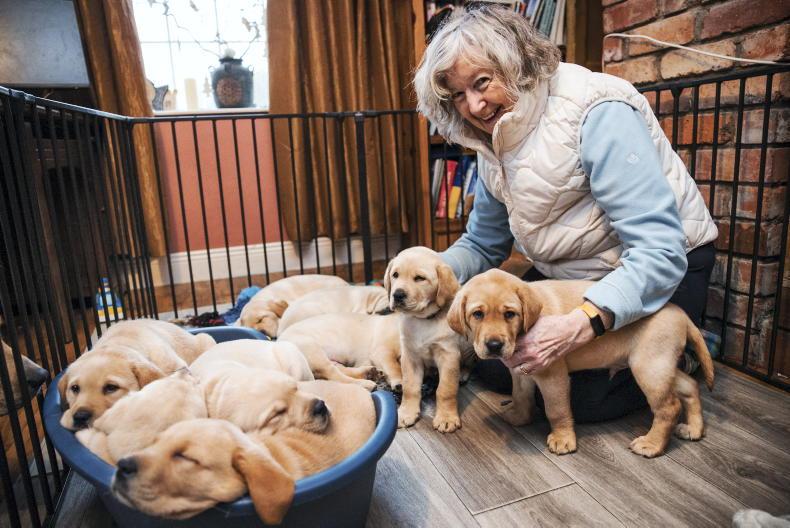
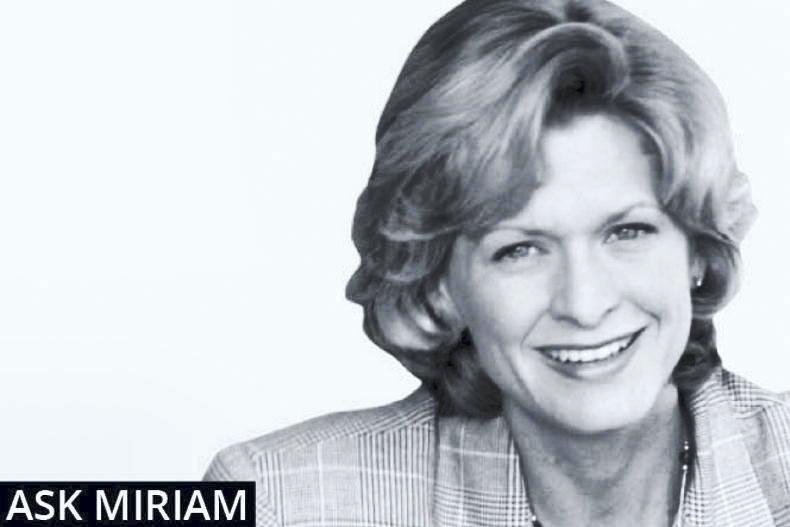
SHARING OPTIONS